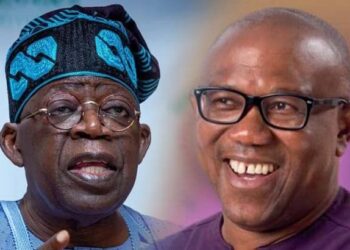 Nigeria’s promise of a pickup in growth, investment and jobs ahead of next year’s election is getting trickier to achieve because of a political stalemate over its record budget.
Nigeria’s promise of a pickup in growth, investment and jobs ahead of next year’s election is getting trickier to achieve because of a political stalemate over its record budget.
Government forecasts of 3.5 percent economic expansion this year are partly premised on a yet-to-be-signed accord worth 9.1 trillion naira ($25.2 billion) that will increase spending on power, roads and ports. Budgets in Muhammadu Buhari’s first democratic term have been delayed for months, and this is the worst holdup yet.
In March, Buhari predicted investment inflows of $25 billion over the next two years, and in 2017 he introduced a four-year plan to help create 15 million jobs in the country. General elections are due in February, when he intends to stand for another term.
“The pace of capital-spending execution in the budget rarely lives up to the stated intent; this is especially so given the late passage of the budget,” Razia Khan, head of macroeconomic research at Standard Chartered Bank Plc, said in an emailed response to questions. “Even though there may be more pressure to execute spending more speedily ahead of an election, the numbers should still be treated with some caution.”
Lawmakers only approved and sent the budget to Buhari to sign into law in May, six months after he presented it to them. They raised the spending plans by 5.8 percent, and adjusted underlying assumptions for revenue, which might mean further delays in case the president disagrees with their amendments. He has 30 days within which to sign the budget.
Delays Possible
“Further delays are still possible as it’s not certain whether Buhari will accept changes made by the National Assembly to his original budget proposal,” said Malte Liewerscheidt, a West Africa analyst at Teneo Intelligence.
Nigeria’s economy is struggling to recover from a 2016 slump, the worst in 25 years, after first-quarter growth was 1.95 percent, below the 2.6 percent median estimate in a Bloomberg survey. Notwithstanding the miss, increased revenue from oil, the nation’s biggest export and foreign-currency earner, will help spur growth for the rest of the year and meet the government’s target, Adeyemi Dipeolu, Buhari’s economic adviser, said in a May 30 interview.
“Downward pressure on the oil price or domestic production shortfalls due to pipeline sabotage would immediately result in severe revenue shortfalls,” Liewerscheidt said. “Either way, growth is still nowhere near Nigeria’s 6 percent pre-crisis average.”
Africa’ most-populous nation of about 200 million people has an urban annual population growth rate of 6.5 percent, according to the National Population Commission. The International Monetary Fund forecasts Nigeria’s economy will expand 2.1 percent this year from less than 1 percent in 2017.
The $25 billion sought on investment inflows “should be seen as just that, a target,” Khan said. “It is better to try to achieve a big foreign-direct-investment target. Even if only some of that is achieved, it will still be beneficial. High aspirations do little harm.”
Source: bloomberg











